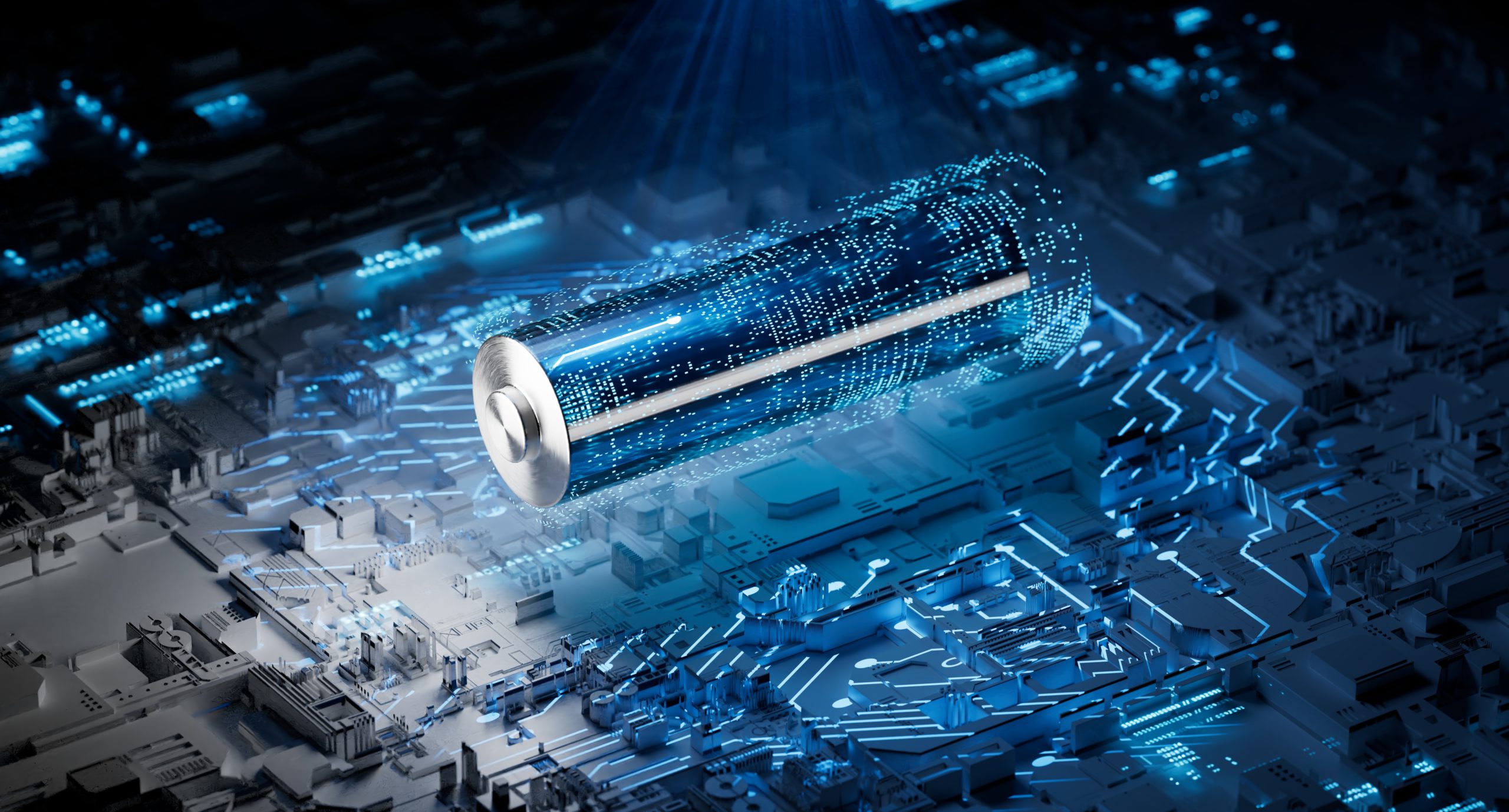Charging Ahead: Next-generation Batteries
The second Cross-Sector Battery Systems Showcase delivered by Innovate UK Business Connect and the Faraday Battery Challenge, brought together sector experts to share their insights on cross-cutting themes. This session delved into the need for next-generation battery technologies, the commercialisation landscape, and the markets primed for adoption.

The panellists for this session included:
- Ian Ellerington – Head of Technology Transfer, The Faraday Institution
- Adrien Amigues – President, Gelion UK
- Sam Alexander – Co-founder & Chief Operating Officer, Celltris
- Charles Footer – Head of Advanced Services & Products, QinetiQ
- Graham Holland – Chief Technology Officer & Chief Engineer, Prismatic
Why do we need next-generation batteries?
The discussion opened with a shared understanding that today’s lithium-ion batteries have undergone dramatic improvements over the years. However, our growing dependence on batteries continues to push their limits and outpaces improvement. Faster charging, improved endurance, and safer chemistries remain top priorities.
Panellists highlighted some of the key drivers for next-generation innovation:
- Energy density and performance: While lithium-ion batteries have improved over the years, new chemistries are needed to continue enhancing energy density and cycle life.
- Resource security: In today’s climate, the argument is geopolitical – the reliance on critical materials like lithium and cobalt has inherent geopolitical and environmental risks. Alternative chemistries such as sodium-ion and lithium-sulphur offer more abundant and sustainable options. For defence applications, supply chain transparency is also crucial.
- Scalability: To meet global electrification targets, the demand for batteries could reach 240,000 GWh, far beyond today’s lithium-ion production capacity (1000 GWh in 2024). There’s a clear need to develop new battery technologies with secure supply chains that can meet diverse electrification targets.
- Evolving use cases: While defence is a small end-use sector, it is often an early adopter for emerging technologies and battery capability directly influences operational effectiveness. From faster charging expectations in electric vehicles to energy storage solutions in defence and aerospace, batteries must continually evolve to meet new performance and use case demands.
Commercialisation of Lithium-Sulphur, Sodium-Ion, and Solid-State Batteries
Next-generation battery technologies including lithium-sulphur, sodium-ion and solid-state, offer exciting and cost-effective opportunities in cross-sector markets such as aerospace, defence, maritime and rail. In defence, some applications prioritise power density over longevity, while others require extreme endurance. For example, high-altitude pseudo-satellites need lightweight batteries with long cycle life, whereas directed energy weapons prioritise high power and rapid recharge capabilities over weight.
However, commercialisation faces hurdles:
- Lithium-Sulphur: Although lithium-sulphur predates lithium-ion, commercialisation has been slow due to challenges with cycle life and stability. Panellists noted that while it is unlikely to enter the automotive market soon, it could see adoption in defence and aerospace within the next five years due to its high energy density.
- Sodium-Ion: With supply chain security as a growing concern, sodium-ion offers an alternative to lithium-dependent chemistries. Panellists stated that the volatility of lithium prices makes sodium-ion an attractive option. While it may not match lithium-ion in every metric, its cost-effectiveness and abundance make it a viable alternative for stationary storage and other niche applications.
- Solid-State Batteries: These offer improved safety, faster charging and energy density but remain in the early stages of manufacturing. Automotive and consumer electronics sectors are leading investments in this space, but widespread adoption will take time.
Beyond Mobility: The Best Markets for Next-Gen Batteries
While electric vehicles dominate battery development discussions, other industries stand to benefit significantly from next-generation advances:
- Aerospace & defence: The need for high energy density and lightweight solutions makes lithium-sulphur and solid-state technologies attractive. In some defence applications, energy density may outweigh cycle life concerns.
- Grid storage: Sodium-ion’s potential to provide cost-effective, long-duration storage solutions is a major opportunity for renewable energy integration.
- Maritime & rail: These sectors require batteries with high energy density, long cycle life, fast charging, and safety under harsh conditions. It’s likely a combination of technologies will be required to decarbonise operations such as hybrid systems (battery + hydrogen fuel cells) for long-haul rail and shipping. Cost reduction is also a driving factor in material selection.
The transition to next-generation batteries is essential to meeting the energy demands of the future. While challenges in commercialisation persist, the UK battery ecosystem is making strides in scaling up new technologies. With continued investment and collaboration, we can reshape energy storage solutions across multiple industries whilst addressing supply chain vulnerabilities.
Final Thoughts
The transition to next-generation batteries is essential to meeting the energy demands of the future. While challenges in commercialisation persist, the UK battery ecosystem is making strides in scaling up new technologies. With continued investment and collaboration, we can reshape energy storage solutions across multiple industries whilst addressing supply chain vulnerabilities. To keep connected to insights on emerging technologies, stay part of the conversation by signing up to the Cross Sector Battery Systems Innovation Network.
Related Events and Recordings
Wed
19
Mar
2025
Cross-Sector Battery Showcase - Advancing Innovation Across Industries - 2025
08.30 - 16.30 GMT | Leicester
Watch now
Related programme

Cross-Sector Battery Systems Innovation Network
The Cross-Sector Battery Systems Innovation Network, funded by Innovate UK, is a cross-sectoral and collaborative community of technology developers and end-users.


